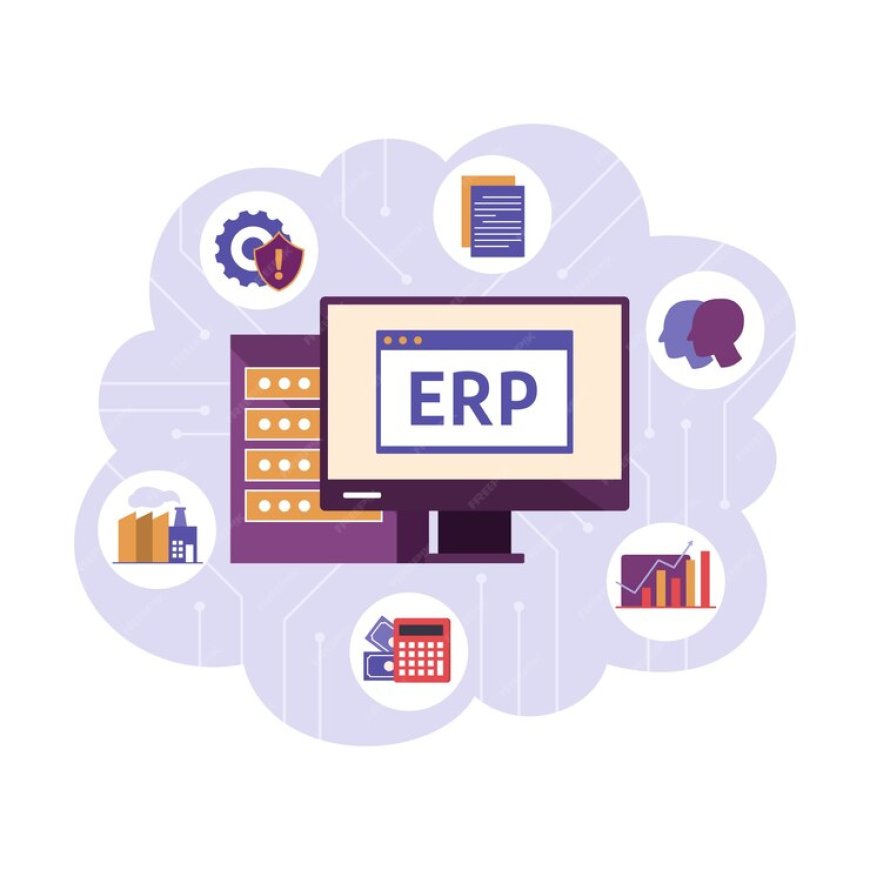How ERP Inventory Management Enhances Customer Satisfaction
Discover how ERP Inventory Management can streamline your business operations, improve accuracy, and enhance customer satisfaction.

In today's fast-paced business environment, customer satisfaction is the key to success. Companies are constantly looking for ways to improve their operations to meet and exceed customer expectations. One powerful tool that has emerged in recent years is ERP (Enterprise Resource Planning) inventory management. By integrating various business processes into a unified system, ERP inventory management significantly enhances customer satisfaction. Here's how:
1. Accurate and Real-Time Inventory Data
One of the most significant advantages of ERP inventory management is the ability to provide accurate and real-time inventory data. This transparency allows businesses to keep track of their stock levels, ensuring that they always have the right products available to meet customer demands. No more delays or backorders—customers receive what they want when they want it.
2. Improved Order Fulfillment
Efficient order fulfillment is crucial for maintaining high customer satisfaction. ERP systems streamline the entire order fulfillment process, from order entry to shipping. By automating these processes, businesses can reduce errors, speed up order processing times, and ensure that customers receive their orders promptly. Faster and accurate deliveries translate directly to happier customers.
3. Enhanced Product Availability
With ERP inventory management, businesses can better predict and manage inventory needs. Advanced forecasting tools analyze sales trends, seasonal demand, and other factors to ensure optimal stock levels. This proactive approach minimizes the risk of stockouts and overstock situations, ensuring that popular products are always available. Customers appreciate the reliability and convenience of finding the products they need.
4. Personalized Customer Experience
ERP systems collect and analyze vast amounts of customer data, providing valuable insights into customer preferences and buying behaviors. Businesses can use this information to offer personalized recommendations, targeted promotions, and tailored services. By understanding and anticipating customer needs, companies can create a more personalized shopping experience, fostering customer loyalty and satisfaction.
5. Efficient Returns and Refunds
Handling returns and refunds efficiently is an essential aspect of customer satisfaction. ERP inventory management systems streamline the returns process, making it easier for customers to return products and receive refunds quickly. The system tracks return statuses and ensures that inventory levels are updated accordingly, preventing any disruptions in stock availability. A hassle-free returns process builds trust and confidence in the brand.
6. Improved Communication
ERP systems integrate various departments and functions within a business, facilitating better communication and collaboration. When all teams—sales, marketing, customer service, and inventory management—are on the same page, it ensures a seamless customer experience. Customers receive consistent information and support across all touchpoints, enhancing their overall experience with the brand.
7. Enhanced Supply Chain Management
ERP inventory management extends beyond the company's walls, improving supply chain management as well. By coordinating with suppliers and distributors, businesses can ensure timely replenishment of stock, maintain optimal inventory levels, and avoid disruptions. A well-managed supply chain results in fewer delays, fewer stockouts, and a more reliable product availability, all of which contribute to higher customer satisfaction.
8. Data-Driven Decision Making
The data analytics capabilities of ERP systems empower businesses to make informed decisions based on real-time insights. Companies can identify trends, track performance metrics, and pinpoint areas for improvement. By leveraging this data, businesses can continuously refine their inventory management strategies to better serve their customers.
Conclusion
Incorporating ERP inventory management into your business operations is a strategic move that can significantly enhance customer satisfaction. From ensuring accurate stock levels and improving order fulfillment to offering personalized experiences and streamlining returns, ERP systems provide the tools needed to meet and exceed customer expectations. As a result, businesses not only build stronger customer relationships but also gain a competitive edge in the market.
Investing in ERP inventory management system is not just about improving internal processes—it's about creating a superior customer experience that drives loyalty and growth. By leveraging the power of ERP systems, businesses can transform their inventory management practices and, ultimately, achieve higher levels of customer satisfaction.
What's Your Reaction?
























